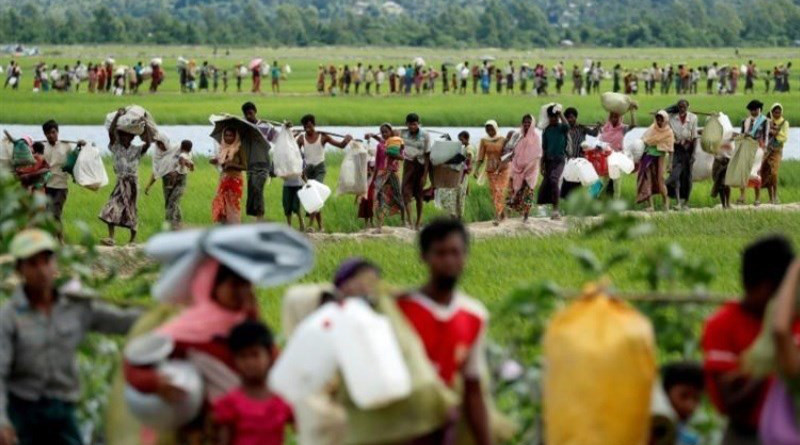Vietnam’s Important Role In Upcoming UNGA to End Plight Of Rohingya – OpEd
In the upcoming 76th United Nations General Assembly (UNGA), a vote on Rohingya repatriation is likely. After four years of the exodus, the issue has already emerged as a regional security threat. The crisis is affecting everyone due to the increasing vulnerability of the Rohingya community, who are gradually becoming prone to illegal migration, medium of contraband, and target of terrorist recruiters. A multilateral consensus on repatriation is a dire need to mitigate the concerns and end the plights of the Rohingya community currently living in camps in Cox’s Bazaar. Hence, as the representative of the Rohingya in the global community, Bangladesh will expect positive co-operations from all the countries, including Vietnam.
Bangladesh-Vietnam relations were established in 1973 when Bangladesh was the second Asian and the first South Asian country to recognize Vietnam. But the relations go date back before the recognition as in 1972 when the anti-war protest took streets of Dhaka and ‘Vietnam Solidarity Day’ was observed by the general people as they always supported the Vietnamese struggle for independence. As the year passed, bilateral relations grew gradually, and according to 2019, both countries have bilateral trade worth around $1 billion and have agreed to boost the height to $2 billion by 2021. Till now, there are no mentionable disputes among the states.
On the Rohingya issue, Vietnam always played a positive role and even directly contributed to the Rohingya camp through UN World Food Program (UNWFP) in 2019. In 2019, during a formal bilateral meeting between the Vietnamese ambassador to Dhaka and Bangladesh’s foreign minister, Vietnam wished to play a positive role in ensuring safe, secured and dignified repatriation of Rohingya people to their origin.
It is worthy of mentioning that there have hardly been any incidents of violence recorded in Arakan province for the last four years. Yet, the Rohingya community is still in fear and uncertainty due to Myanmar’s failure to build trust and lingering the repatriation process. The latest coup has also resulted in halting the process indefinitely.
Vietnam’s anti-imperialist struggle is historic and respected all over the world. Vietnamese people had to go a long way for their independence and liberty. Again, The Socialist values of Vietnam also uphold their belief and support for oppressed people and the dignity of men. Moreover, Vietnam also suffered from forced migration in the late 1970s and early 1980s when many Vietnamese citizens migrated using seaways. The incident is known as the ‘Asian Boat People’ case of the 1980s. However, the crisis was also solved multilaterally, with Vietnam striking deals with 31 host countries and ensuring peaceful repatriation.
Similarly, Rohingya people who are rightful dwellers of Arakan should not live in a camp and perish from the earth in the face of persecution. They also deserve to go back to their ancestral place and live with dignity and human rights. Moreover, the perpetrators who inflicted atrocities and took part in crimes against humanities should also be brought to law to set an example for future persecutors and uphold the international standard of Human Rights.
Apart from the moral aspect, as an ASEAN member state, Vietnam is also affected by this issue. It is a maritime security concern for Vietnam as Rohingyas are also being dubbed as ‘new Asian Boat people’ and are prone to migrate illegally to seek a better life using South East Asian seaways. Quite often, on the high seas, they face ‘life-threatening’ conditions. Only a safe, secured, and dignified repatriation can end this problem. Bangladesh’s experience with Myanmar shows that repatriation will only linger unless a multilateral resolution takes place where Vietnam should participate positively because of its historical struggle for freedom, dignity, and national belief; and ensure its maritime security.
Therefore, in the upcoming UNGA vote on Rohingya repatriation, Bangladesh will expect that Vietnam will consider both the moral obligation and maritime security and hopefully vote ‘Yes’ in favor of Rohingya repatriation. As Ho Chi Minh once said,
“When the power of love overcomes the love of power, the world will know peace.”

